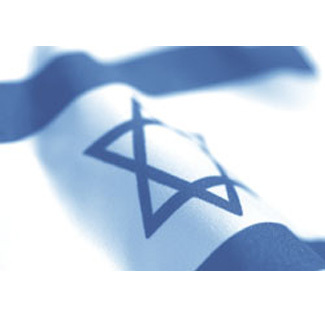
In my world, people are always trying to come up with new ways to contrast and compare everything. Good and bad, black and white, there are so many fault lines and rifts between people, groups, and ideologies. The recent row over the gay pride parade and the rioting in Jerusalem is just one example of the tensions simmering below the surface. If you take a look at the patchwork way in which rifts between groups are mended, it seems as if it’s a temporary band aid on the underlying problems. It is paramount we work together as a society for the common good. We are made up of so many factions, from religious to secular, the privileged to the working poor, Israelis run the full spectrum of human possibilities. As I think the country has shown in the past, when push comes to shove, when the future is at stake, we put aside our differences and pitch in together. I guess it’s when we have nothing better to fight about; we look inwards and get riled up by our fellow citizens who may not be exactly like ourselves. The joke about the Jew on the deserted island goes, after years of being shipwrecked on a deserted island, he was finally found. Before he set off back to civilization, he asked the ships captain to come ashore for a tour of the island. The captain was blown away by the sight before him; the castaway had built an entire city out of wood. Walking through the street, the shipwreck told the captain “this is my synagogue, pointing to a building on the right” he continued “this is the other synagogue, on the left”. The captain asked why one person would need two synagogues; “well” the shipwrecked man answered “that’s the synagogue I don’t go to”. As the expression goes, as two Israelis an opinion and get half a dozen answers. We may not seem eye to eye on everything, or anything, but somehow we still keep the country moving along and trying to find the best compromise for everyone to keep things on track. I think that’s one the best features of the country. Get on a bus, go somewhere, stand in line, order some food, you suddenly have something in common with everyone around you. Shared history, heritage and outlook may be a common bond, but it’s more likely you will find yourself eating jachnun and schug (fried dough and hot pepper spread) with people from four continents. You so often meet people from all walks of life that in any other context would have nothing in common with. Suddenly you find both the ninety year old grandmother from Ukraine and the twenty year old sabra both love soccer, but root for different teams. Israel has a way of bringing people together, and making not just memories, but creating life in a state where things are dynamic, exciting, and alive. I read in a magazine a while back about a survey of chefs in Israel and what they thought Israeli food was. From shwarma to pita, chummous to cous cous, everything we consider Israeli has its origins in other cultures, and other places. Even in antiquity, Israel was the place where there was an exchange of ideas, culture, and goods. Perhaps the recipe for the perfect falafel was passed along by a merchant looking for the perfect recipe for shwarma… It seems that the real answer is that Israeli food, like our culture, is fusion, with bits and pieces taken from all over the world and woven into a tapestry. We have room in our cultural palete for gifelte fish, falafel, jachnun, malbi, and plenty of room left over for the hundreds of cultural delights. I always think of Dr. Seuss and his story about butter side up, or butter side down. As a nation, we each have a unique take on the world and how to go about making it a better place. Ultimately, we hopefully all end up eating our bread and butter whatever side it’s on. Maybe it’s not critical how we get there, but that we work towards a common goal together.


No comments:
Post a Comment